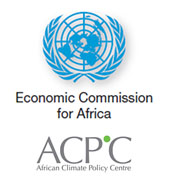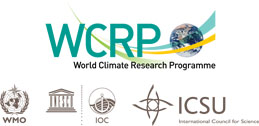Addressing Priority Research Gaps to Inform Adaptation Decision-Making in Africa Concept Note
Limits to knowledge impose tenacious boundaries and restrict the usability of climate information for African decision-makers and communities most vulnerable to current and future impacts of a changing climate. As the continent predicted to be the second hardest hit by Climate Change impacts, immediately following polar zones (IPCC, 2007), Africa has a stake in improving the skill and salience of its climate research outputs. Current and future African climate research must be both informed and driven by the critical adaptation needs of African decision-makers in Africa, at national, regional and local levels, striving to adapt under an uncertain climate future.
As such, there is a need to bring together African decision-makers and climate researchers and scientists, around the common goals of identifying the state of knowledge on the African climate system, identifying current gaps in climate knowledge, developing a framework for mainstreaming climate information into decision making, and defining and driving an African agenda for future climate research that will inform adaptation decisions, today, and by the mid- to end 21st century.
The African Climate System Conference 2013 proposes to narrow the large gap currently existing between African decision-makers and climate researchers and scientists to develop a coordinated research strategy to enhance African climate scientist collaboration in order to push back the knowledge frontiers of African climate, and improve climate science outputs so that they may better inform adaptation decision-making in Africa.
The conference seeks to foster the twin-track approach of researching the use of existing climate information for decision-making, while improving predictability and skill of climate science outputs (ACPC, 2011) by catalyzing activities across the continent for improved and more salient climate science outputs in the near future.
The Conference will precede the Third Conference on Climate Change and Development in Africa (CCDA-III). The CCDA is one of the key activities of the Climate for Development in Africa (ClimDev-Africa) Programme. This joint initiative by the African Union Commission (AUC), the United Nations Economic Commission for Africa (UNECA) and the African Development Bank (AfDB) provides the forum for dialogue and engagement with various stakeholders involved in climate and development in Africa.
Climate Research Frontiers
The Africa Climate Conference 2013 Steering Committee has developed a foundational paper on the research frontiers in climate research in Africa, framed from the perspective of user decision support needs, which will form the basis of the conference agenda.
There are three key issues that must be addressed though the frontiers. One is the priority to build interdisciplinary capacity, in other words to link three distinct communities – stakeholder users, research, and interface practitioners. The second is how to integrate multiple lines of evidence - historical data, global climate and regional model data, and process understanding - to deliver robust messages. Finally, there is the need to identify the limit of information and to quantify uncertainty.
Objectives
The overarching goal of the Africa Climate Conference 2013 is to craft an Africa wide agenda on climate research for sustainable development, linked to existing continental policy processes, partners and institutions (regional, national and sub-national) to deliver an Africa agenda on climate research, while addressing global research needs.
- Provide a wide international forum to exchange understanding on the current state of knowledge of the African climate and the drivers of African climate variability and change.
- Deepen and broaden the consensus, begun at CCDA-II, on the priority knowledge gaps/climate science frontiers that need to be addressed.
- Review and assess the state of knowledge on each climate science frontier identified (from the mapping of knowledge gaps in 1), through presentations by leading researchers in each field.
- Identify missing links and obstacles that will need to be overcome in order to bridge African climate science and applications.
- Develop pan-African climate research program proposals for each critical climate science frontier, for funding submission.
- Leverage national, regional and international sources of funding to advance climate research for sustainable development in Africa.
- Develop and strengthen the network of climate researchers and practioners working on the African climate system, building on existing national/regional/continental climate research institutions and knowledge hubs.
- Create a platform for knowledge sharing, advocacy and consensus building for climate research in Africa to serve sustainable development needs.
The Africa Climate Conference 2013 objectives are matched with expected outputs and deliverables in Table 1.
Specific Objective |
Expected Output |
Expected Deliverables |
| 1. Identify the current state of knowledge on the Variability and Changes in the African Climate system, and knowledge gaps in prediction and projections as well as uncertainties | African Climate science knowledge gaps are mapped, particularly within the bounds of the limits to predictability, for all climate-sensitive sectors defined out of CCD-1 | - Improved understanding of the limits of African climate predictability; - Preliminary identification of gaps in climate science knowledge (African climate science frontiers) |
| 2. Consensus on critical climate research gaps / climate science frontiers needed to be addressed to inform adaptation decision-making in the near and longer-term in Africa | - Current gaps in African climate knowledge (Climate Science frontiers) are identified; - African Climate science research priorities are defined and prioritized | Narrowing of the large gap separating African climate researchers and adaptation decision-makers |
| 3. Review of the State of knowledge in each Climate Science frontier (knowledge gap) identified under Objective 1 | - African climate research results and outputs showcased; - Presentations by leading researchers working to push back each identified Climate Science frontier clarify current state of knowledge on the CS frontier; - Review article on the state of knowledge on each CS frontier | Improved understanding of the current state of knowledge on each African Climate Science frontier |
| 4. Identify obstacles needed to be overcome to push back the Climate science frontiers | Presentations by leading researchers working to push back the identified Climate Science frontier clarify obstacles to furthering knowledge on CS frontier, and ways forward to overcome them | - Improved understanding of obstacles to furthering knowledge on each African Climate Science frontier, and ways forward to overcome them; - Greater focus on key impediments to better prediction; - Allocation of resources to identified priorities |
| 5. Develop pan-African climate research program proposals for each critical Climate science frontier, and submit for funding to research donors in attendance, enabling the sustainability of climate research in Africa | - Pan-African research programs addressing the frontiers of African climate science (Onset/cessation, Inter-seasonal variability, Emerging climate risks, CC) are developed, and funded; - Existing African climate science research institutions/hubs selected to serve as hosts for each African Climate Frontier Research node, creation of (potentially coordinated by an African Centre for Climate Research (ACCR) and funded by an Africa Science Foundation (ASF), both to be developed, in collaboration with the African Academy of Sciences (AAS), to sustain the research agenda; - Sustainable partnerships between universities, research institutions, RCCs and national frameworks for Climate Services developed, to accelerate the assimilation of research into operational climate services and decision-making; - Added-value of model prediction products rigorously assessed and evaluated. | - Critical mass of African climate researchers catalyzed to push back frontiers of African CS; - Deeper cross-African research collaborations between climate scientists researching the same CS frontier, as well as African climate science institutions; - Strengthening of regional and national African climate science research institutions, enabling them to address the critical decision-making needs of policy makers and vulnerable communities; - In the long run, utilization of outputs of climate research programs by multidisciplinary community of university, industry and government partnerships in Africa that will design, test and introduce climate-based strategies for a greater quality of life in the regions served by the program and its hosting institutions; |
| 6. Leverage national, regional and international sources of funding to advance climate research for sustainable development in Africa | - National and regional organizations mobilized to address the needs and priorities of climate research to serve adaptation decision-making; - National and regional sources of funding leveraged to fund African research priorities | |
| 7. Develop and strengthen the network of climate researchers and practioners working on the African climate system, building on existing national/regional/continental climate research institutions and knowledge hubs; | ||
| 8. Devise a platform for knowledge sharing, advocacy and consensus-building for climate Research in Africa to serve sustainable development needs | - Recommendations for higher level policy making for improved delivery of climate services formulated - Anchorage of the climate science – user dialogue in the CCDA-process - |
- Log in to post comments
|
UN Economic Commission for Africa, Menelik II Ave. P.O. Box 3001, Addis Ababa, Ethiopia. Tel: +251 11 551 7200, Fax: +251 11 551 4416
World Meteorological Organization, 7bis, avenue de la Paix, Case postale 2300 CH-1211 Geneva 2 Switzerland. Tel.: +41 (0) 22 730 81 11 Fax: +41 (0) 22 730 81 81
|
Sponsors
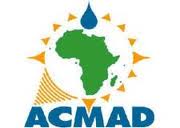 |
 |
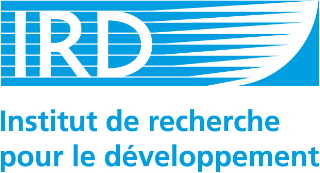 |
 |
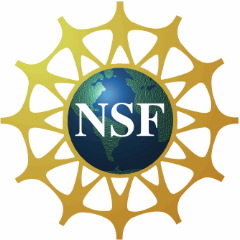 |
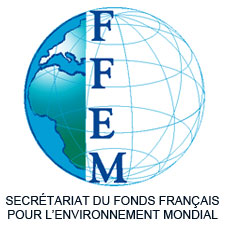 |
 |
 |
 |
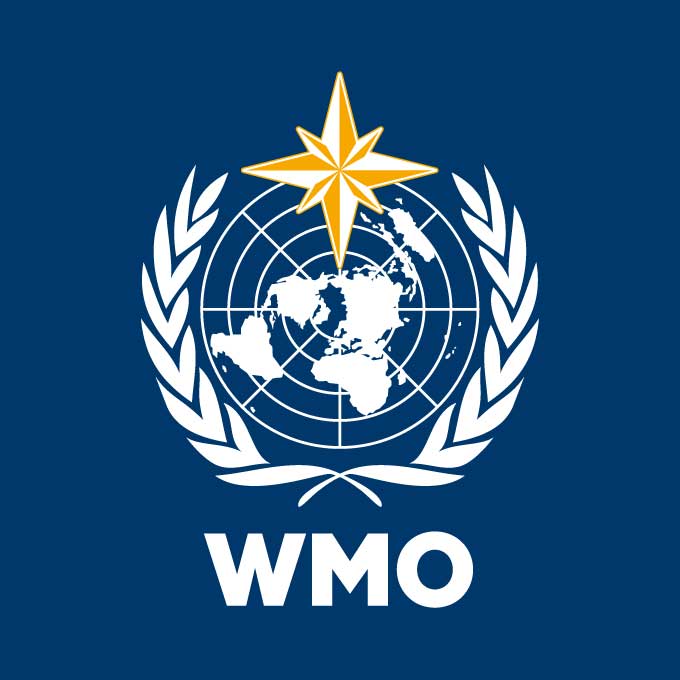 |
 |
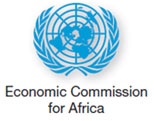 |
 |
 |
